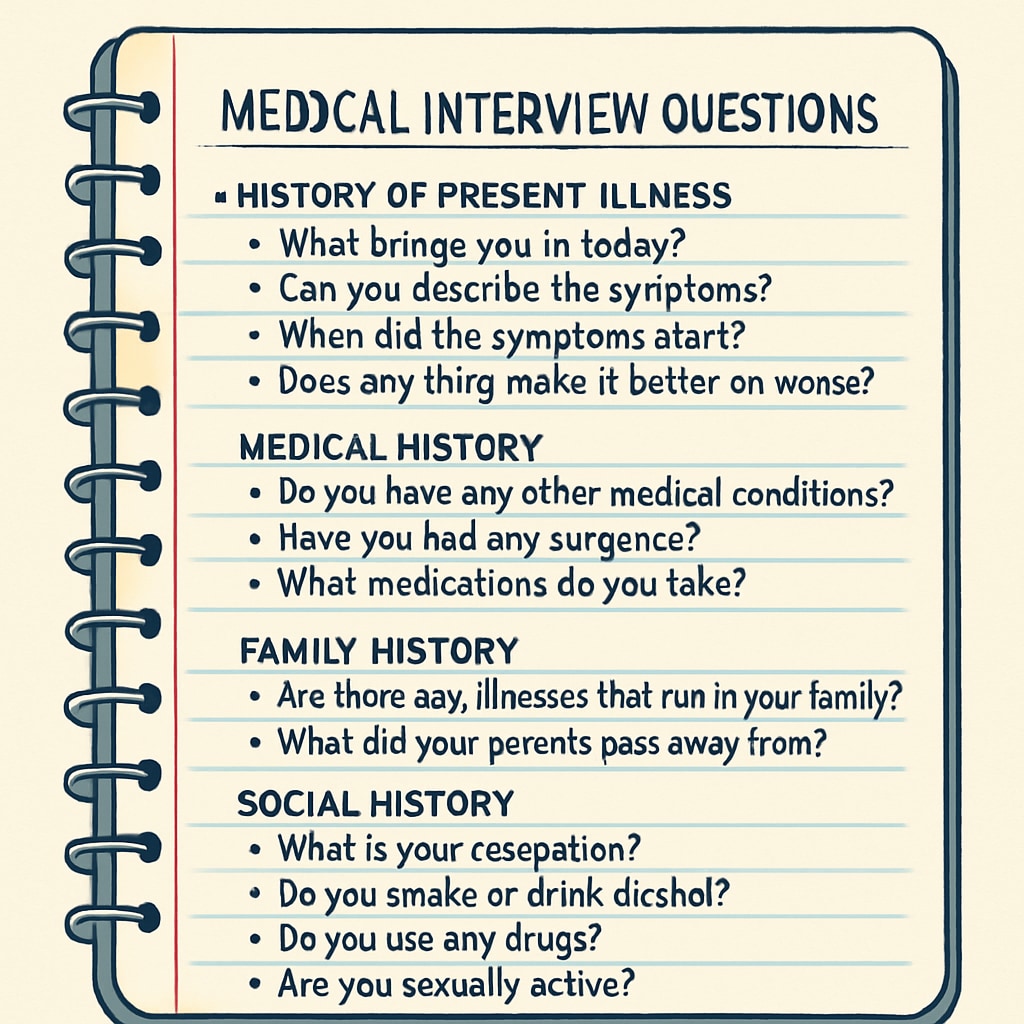Medical career interviews offer a unique way for K12 students to explore the realities of the healthcare profession. By engaging with professionals through structured interviews, students can gain authentic insights into the daily responsibilities, challenges, and rewards of working in medicine. This approach not only supports early career planning but also inspires students to make informed decisions about their future. In this article, we will discuss how to craft high-quality interview questions and leverage the results to create actionable career pathways for young learners.

Why Medical Career Interviews Are Crucial for K12 Students
For many students, the medical field is both fascinating and intimidating. They may aspire to become doctors, nurses, or researchers but lack a clear understanding of what these roles entail. Career interviews bridge this gap by providing a first-hand perspective. This not only demystifies the profession but also helps students assess whether their skills, interests, and values align with a medical career.
Moreover, structured interviews allow students to develop critical soft skills such as communication, critical thinking, and curiosity. These skills are essential for success in any career, particularly in healthcare, where interpersonal interactions and problem-solving are core to the job.
To maximize the impact of these interviews, it’s important to design them thoughtfully. A well-structured interview ensures that students extract meaningful information while remaining respectful of the professional’s time.
How to Design Effective Medical Career Interview Questions
Creating an effective set of questions is the foundation of a successful interview. Here are some guidelines to follow:
- Start with open-ended questions: Questions beginning with “What,” “How,” or “Why” encourage detailed responses. For example, “What inspired you to choose a career in medicine?”
- Focus on day-to-day responsibilities: Students often have misconceptions about medical roles. Questions such as “What does a typical day look like for you?” can provide clarity.
- Address challenges and rewards: Understanding both the difficulties and the joys of a medical career helps students form a balanced view. Ask, “What is the most rewarding part of your job?” and “What challenges do you face regularly?”
- Explore educational pathways: Many students are unaware of the academic and professional requirements for medical careers. Questions like “What qualifications and training are necessary for your role?” are crucial.
- Seek advice for aspiring professionals: Asking “What advice would you give to someone considering a career in medicine?” can yield valuable insights and actionable tips.
To ensure the interview flows smoothly, organize questions into logical categories, such as personal motivations, professional experiences, and future trends in healthcare.

Transforming Interview Insights into Actionable Career Pathways
Interviews are only as valuable as the actions taken afterward. Here’s how educators and students can use the insights gained:
- Create reflection exercises: After completing an interview, students should reflect on what they learned. Questions like “What surprised you the most?” or “How has this interview influenced your career interests?” encourage deeper thinking.
- Develop personalized career plans: Based on the interview findings, students can identify steps to pursue their chosen path, such as taking relevant science courses, joining healthcare-related extracurricular activities, or volunteering at local clinics.
- Share findings with peers: Students can present their interview takeaways to classmates, fostering a collaborative learning environment and exposing others to diverse medical roles.
- Seek mentorship opportunities: If the professional is open to it, students can establish a mentoring relationship for ongoing guidance and support.
In addition, educators can compile interview insights into a resource library, offering future students a repository of real-world advice and experiences from medical professionals.
Conclusion: Inspiring the Next Generation of Healthcare Professionals
Medical career interviews are a powerful tool for guiding K12 students in their career planning journey. By thoughtfully designing question sets and leveraging the insights gained, educators and students can make informed decisions about pursuing a future in healthcare. With structured preparation and actionable follow-up, these interviews can inspire the next generation of compassionate, skilled, and dedicated medical professionals.
For more information on the importance of career planning in education, visit Career Planning on Wikipedia or explore resources about Education on Britannica.


